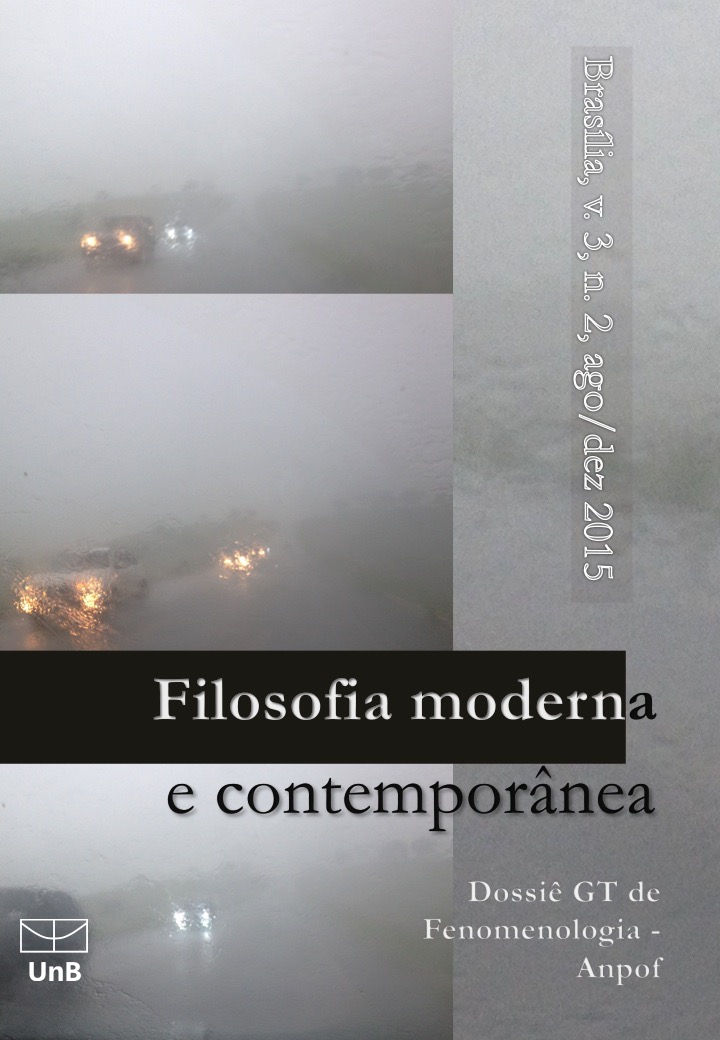Max Stirner, the limits of the Subject in the Hegelian left and a turning point in philosophy
DOI:
https://doi.org/10.26512/rfmc.v3i2.12519Keywords:
Ownership, Modernity, Hegelianism, SubjectivityAbstract
Examining Max Stirner in context of the Youth Hegelians Movement we can see that his philosophical work dialogue with their period critically. Stirner sees in the intellectual development of their age a space to overcome not only the beyond outside us, in God, but also beyond us, in Man (humanity). His contemporaries did well the first task, but not the second, incurring in the return in a sacredness, proclaiming, in place of a theological realm, a anthropological realm. From there, then Stirner develops a philosophy of the unique, based on the act of appropriation of the abstract ideas by the particular and corporeal individual. With this formulation the author radicalizes the question of the subject in his critique of Modernity when also offers to philosophy tools for a development (post)modern, in a untranscendental way, toward the contemporary philosophy.
References
BAUER, B., “Die Fähigkeit der heutigen Juden und Christen, frei zu warden”. In: _____. Feldzüge der r einen Kritik. Frankfurt: Suhrkamp Verlang, 1968a, p. 175-195.
_____. “Die gute Sache der Freiheit und meine eigene Angelegenheit”. In: _____. Feldzüge der r einen Kritik. Frankfurt: Suhrkamp Verlang, 1968b, p. 91-152.
_____. “The Genus and the Crowd”. Trad. Michael P. Malloy. In: The Philosophical Forum, Boston, Massachusetts, vol. 8, nº 2-4, 1978, p. 126-134.
_____. “Hinrichs politische Vorlesungen”. In: _____. Feldzüge der reinen Kritik. Frankfurt: Suhrkamp Verlang, 1968c, p. 196-199.
_____. The Trumpet of the Last Judgment Against Hegel the Atheist and Anti-Christ: An Ultimatum. Tr a d . L a w r e n c e Stepelevich. Lewiston/Lampeter/Queenston: The Edwin Mellen Press, 1989.
ENGELS, F., “Ludwig Feuerbach e o Fim da Filosofia Clássica Alemã”. In: Marx/Engels ”“ Obras Escolhidas ”“ Volume 3. São Paulo, SP: Editora Alfa-Omega, s/d, p. 169-207.
FEUERBACH, L., A E s s ê n c i a d o Cristianismo. Trad. José da Silva Brandão. Petrópolis, RJ: Vozes, 2009.
KLOTZ, H. C., “Subjetividade no idealismo alemão”. In: Revista Inquietude, Goiânia, GO: UFG, vol. 1, n. 1, jan/jul, 2010, p. 145-162.
LYOTARD, J.-F., A Condição Pós-Moderna. Trad. Ricardo Corrêa Barbosa. Rio de Janeiro, RJ: José Olympio, 2011.
MARX, K., Sobre a Questão Judaica. Trad. Wanda Caldeira Brant. São Paulo, SP: Boitempo, 2010.
MARX, K., ENGELS, F., A Ideologia Alemã. Trad. Rubens Enderle, Nélio Schneider e Luciano Cavini Martorano. São Paulo, SP: Boitempo, 2007.
NIETZSCHE, F., Além do Bem e do Mal.Trad. Paulo César de Souza. São Paulo: Companhia das Letras, 2005.
_____. Ecce Homo. Trad. Paulo César de Souza. São Paulo: Companhia das Letras, 2008.
RORTY, R., Contingência, ironia e solidariedade. Trad. Vera Ribeiro. São Paulo, SP: Martins Fontes, 2007.
_____. “Um Mundo Sem Substâncias ou Essências”. Trad. Cristina Magro e Antônio Marcos Pereira. In: MAGRO, C., PEREIRA, A. C. (Orgs.), Pragmatismo: a filosofia da criação e da mudança. Belo Horizonte, MG: Editora UFMG, 2000, p. 53-92.
SOUZA, J. C. de, A Q u e s t ã o d a Individualidade: a crítica do humano e do social na polêmica Stirner-Marx. Campinas, SP: Editora da UNICAMP, 1993.
_____. Ascensão e Queda do Sujeito no Movimento Jovem Hegeliano. Salvador, BA: Centro Editorial e Didático da UFBA, 1992.
STEPELEVICH, L., The Young Hegelians: An Anthology. New York: Humanity Books, 1999.
_ _ _ _ _ . “ H e g e l a n d S t i r n e r ” . I n : MOGGACH, Douglas (Org.), The Left Hegelians: New Philosophical and Political Perspectives. Cambridge: Cambridge University Press, 2005, p. 166-175.
STIRNER, M., O Único e sua Propriedade. Trad. João Barrento. São Paulo, SP: Martins Fontes, 2009.
_____. “Stirner’s Critics”. Trad. Frederick M. Gordon. In: The Philosophical Forum, Boston, Massachusetts, vol. 8, nº 2-4, 1978, p. 66-80.
Downloads
Published
Issue
Section
License
Copyright for articles published in this journal is retained by the authors, with first publication rights granted to the journal. By virtue of their appearance in this open access journal, articles are free to use, with proper attribution, in educational and other non-commercial settings.


